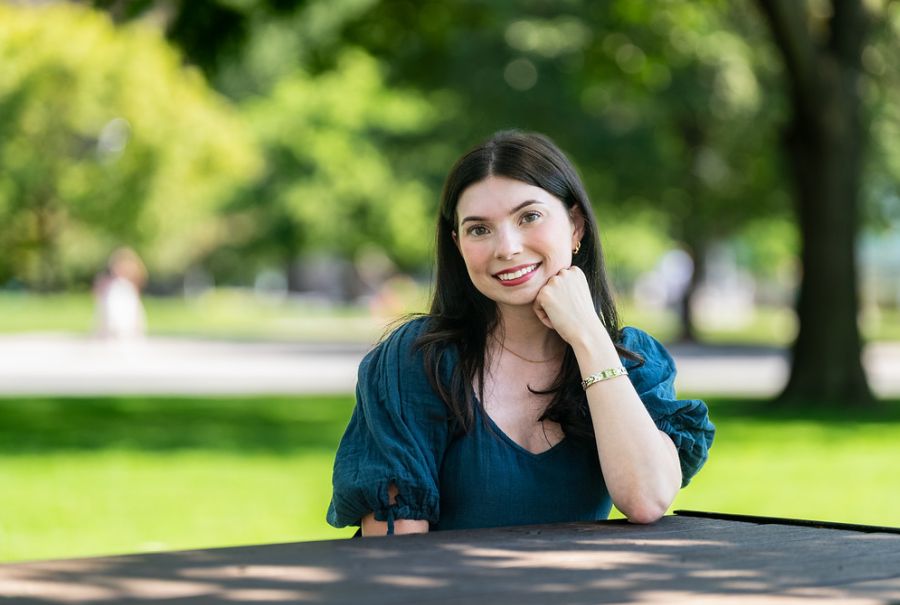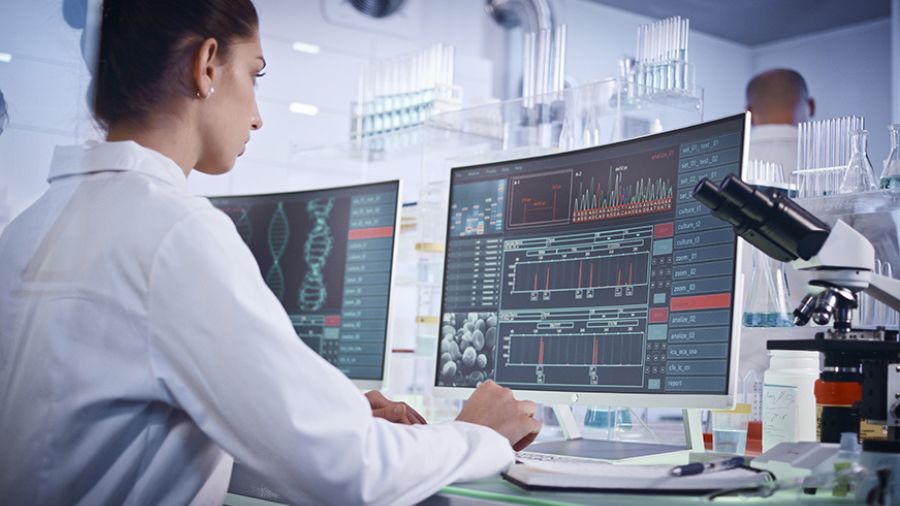Kevin Robb, (L), a doctoral student in Dr. Sowmya Viswanathan’s laboratory and the lead author of the study, and Dr. Viswanathan, a scientist at UHN’s Schroeder Arthritis Institute and the senior author of the study. (Photo: UHN StRIDe Team)
New research led by Dr. Sowmya Viswanathan, a scientist at UHN’s Schroeder Arthritis Institute, has identified key traits of mesenchymal stromal cells (MSCs) that will help to guide their use in cell therapies for osteoarthritis and other diseases.
When delivered to the body, MSCs help suppress inflammation, promote tissue regeneration and aid in the formation of new blood vessels. These properties make MSCs highly attractive for use in the clinic – especially as part of experimental cell therapies that aim to reduce inflammation in osteoarthritis.
Despite their broad potential, MSCs have not been consistently effective when injected into patients. Their variable success is largely due to variations among the cells and their therapeutic properties, which have not been thoroughly characterized.
“Scientists need a way to screen MSCs for desirable properties so they can identify the most promising candidate cells for treating a particular disease and more quickly advance them to the clinic,” says Kevin Robb, a doctoral student in Dr. Viswanathan’s lab and lead author of the study.
“To address this need, we created a tool that defines key attributes of MSCs and can be used to assess their therapeutic potential.”
Using MSCs isolated from samples of human fat tissue, obtained by Dr. Rajiv Gandhi, a clinician-scientist at the Schroeder Arthritis Institute and study co-author, the research team explored which cell attributes vary across donor sources, growth conditions and treatments used to mature the cells. This process included examining features such as cell size and shape, as well as which genes are turned on in the cells and which proteins they produce.
For example, by studying how growth conditions affect cell size and shape, the researchers determined that MSCs grown on flat, two-dimensional surfaces become elongated and tapered, whereas those that are encouraged to cluster and grow in three dimensions become more round.

Next, the team investigated how these attributes affect desired therapeutic properties. They identified 20 attributes related to the ability of MSCs to regulate immune responses and 10 more related to their ability to stimulate formation of new blood vessels.
The team discovered that the conditions used to grow and process MSCs have the greatest influence on their eventual immune functions. In particular, cells that are grown in three dimensions generate greater responses from white blood cells and are more effective at resolving inflammation than those grown in two dimensions.
In contrast, differences among cell donors have the greatest influence on the suitability of MSCs for helping to form blood vessels.
Interestingly, many of the traits that give MSCs better immune functions make them worse in helping to form blood vessels, and vice versa.
“This suggests that a one-size-fits-all approach is not suitable for applying MSCs in therapy. The cells need to be manufactured and selected according to their desired functions,” according to Dr. Viswanathan, who is also an associate professor of haematology in the Division of Medicine at the University of Toronto (U of T) and is cross-appointed to U of T’s Institute of Biomedical Engineering.
By identifying the most relevant attributes of MSCs and how they relate to therapeutic functions, Dr. Viswanathan’s team has moved us closer to new therapies.
This study was supported by generous donors to UHN Foundation.


